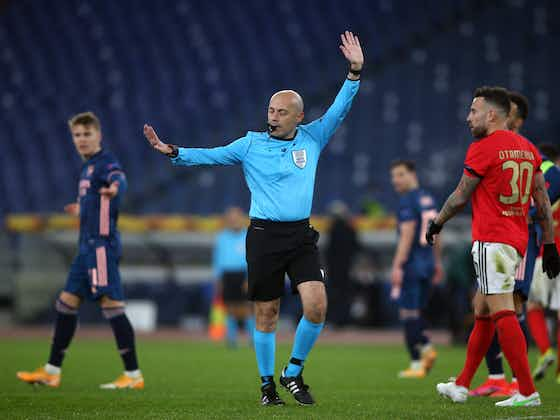
UEFA/MLS has ruled that teams may have up to five substitutes per game. What number can be added? Are they too many? Is there a compromise? This article will discuss how frequently teams can make changes and what it means for the game. You'll also learn what it means to have unlimited replacements. Remember, the goal is excitement.
Five substitutes per game
FIFA rules allow teams to make five substitutions per game. It isn't clear why this rule has been introduced. However, it's likely to be due physical demands on players and suspensions of leagues in response to the COVID-19 Pandemic. The new rule is in place for the 2020-21 soccer season. For more information, read the Rules of Soccer A Beginners Guide.

Unlimited substitutions
There are several reasons why unlimited substitutions in soccer should be banned. Excessive substitutions in soccer can lead to break-ups in play that can affect the game's momentum. Furthermore, if the game is not competitive, a coach could potentially use more than three substitutions, which could have negative effects on his team. This situation is very dangerous. Furthermore, players could get hurt if they are subject to unlimited substitutions.
UEFA's five substitute rule
It's easier to replace soccer players thanks to the five-substitute rule. It allows teams the ability to replace injured players with another player. The five-substitute rule will have a positive impact on the game. It will create more balanced teams and help them be more equal. But it will also create a difficult situation for clubs that want to integrate young talent into their team.
Five substitute rules in MLS
Major League Soccer (MLS), coaches look forward to the five-substitute rule. The new rule allows teams five substitutes per match, with an additional sixth allowed during extra time. In addition to a five-substitute limit for the regular season, teams will also be allowed to expand their game-day rosters to 23 players. Many in the game disagree with the rule. Robin Fraser, Denver's head coach has supported the rule despite the concerns.

English Premier League's five replacement rules
Premier League has reintroduced the five sub rule. Teams are now permitted to have five substitutions instead three. It is likely that the rule will be beneficial for top-four or top-half teams. However, it could prove detrimental for bottom half clubs. While the rule has been used in many European leagues, it was resisted by English Premier League clubs, who felt it would disadvantage smaller sides. The rule was reinstituted and the new rules will come into effect on January 1, 2012.
FAQ
How do I play soccer?
A soccer ball is used to play soccer. A typical match lasts for 90 minutes. During these 90 minutes, the ball is kicked continuously. At the end of the match, the team with the most goals wins.
What is a "goal kick"?
A goal kick is when a player crosses the line and places the ball into the net. Goal kicks are sometimes called "golden chances." One example of a great golden opportunity is a long-range shot which goes just wide of goal.
What's the difference?
Soccer and football are very similar. Both require kicking a ball through a small opening called a goal. Soccer is different because players must run and pass the ball instead of just kicking it. Also, soccer uses smaller balls than football.
Statistics
- After hosting an entertaining World Cup finals in 1994, the United States possessed some 16 million football players nationwide, up to 40 percent of whom were female. (britannica.com)
- Get 10% off your first purchase using code BLOG. (technefutbol.com)
- The Laws of the Game do not specify any player positions other than goalkeeper, [74] These positions are further subdivided according to the area of the field in which the player spends the most time. (en.wikipedia.org)
- The word "soccer" is a British invention that British people stopped using only about 30 years ago, according to a new paper by University of Michigan professor Stefan Szymanski. (businessinsider.com)
- the estimated cumulative television audience for the 2006 World Cup in Germany was 26.2 billion, an average of 409 million viewers per match. (en.wikipedia.org)
External Links
How To
How to play football
Soccer requires good skills, such as passing, shooting and heading. These skills should always be improved. You should practice them daily. These steps will teach you how to properly play soccer.
-
Practice dribbling. Dribble around the field until you get comfortable with it. You should practice dribbling in 5 minute bursts. When you feel confident with dribbling the length of your practice should be increased to 10 minutes. Continue practicing this technique every day.
-
Practice passing. Practice passing the balls in front of and behind your eyes. Be sure to pass the ball correctly and only to the person who has space. Try to avoid throwing long passes. It's better if you throw the ball directly to the player who needs it. This will allow you to save energy and keep warm.
-
Practice heading. You must be able to accurately place the ball into the net when heading. To achieve this aim, you must first practice getting yourself into position. Face the target and stand next to the goal line. Then bend forward slightly and put the ball under your chin. Next, raise your head up and look towards the top left corner of the net. Your eyes should be straight ahead. Then, get up and release the ball.
-
Practice handling. Tackling is a difficult skill to master. However, when mastered, it makes football much more fun. Start by tackling with your chest, shoulders and head. Don't drop. Keep your arms and legs close to your body. Two players are better at tackling each other. One player is the defender and one of the attackers. As soon as the attacker gets past the defender, they must immediately tackle him.
-
Learn to shoot. Shooting is a difficult skill that takes practice. Find a place where you can shoot comfortably (e.g. Near the goal. Focus on your form. You can hold the ball between your fingers, but keep it away from your body. Your knees should be bent and your feet should point upwards. Your wrist should be moving in a circular motion as you aim to hit the ball. The goal should be in the lower right corner.
-
Get into running. Running is another skill that can take some time to master. Begin slowly, then increase speed. Running should never be used as a means of attacking because it will tire out your muscles. Instead, move towards the goal with your team to assist them.
-
Practice kicking. Kicking is one of the easiest skills to learn but also one of the toughest. You must develop core strength and leg strength to be able to kick accurately. Place both feet together and lift one leg at a time. Slowly kick with your heels the ball towards you.
-
Re-learn how to dribble. This is the most important skill to master in order to be a great player. Dribbling lets you control the pace of play. It is essential to control the pace of the game. Without it, your opponent would be able to catch up with you and even surpass you. The key to mastering dribbling is consistency. You shouldn't change how you dribble every single day. Keep it simple.
-
Practice free kicks. Free kicks are usually delivered after a foul or when the goalkeeper commits a mistake. Free kicks let you score goals without even having to play the full match. You can practice aiming for the corners. Remember to use your instep and your heel.
-
Practice defending. Positioning is the key to defense. Always keep in close proximity to your opponent's player while playing defense. Block his path so that he doesn't score. Always be attentive to your teammates' safety.